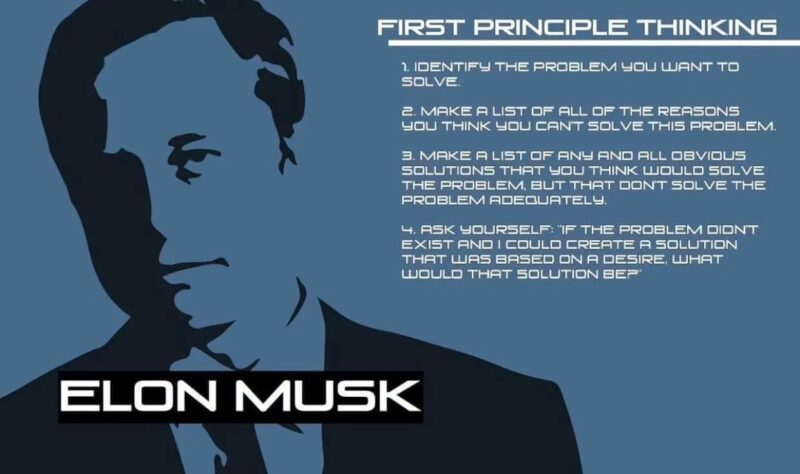In a world increasingly dominated by complex challenges and rapid changes, the ability to solve problems effectively has never been more vital. First principles thinking, a mental model often attributed to pioneering thinkers like Aristotle and later popularized by innovators such as Elon Musk, offers a fresh lens through which we can dissect and approach these challenges. At its core, first principles thinking encourages us to break down problems into their fundamental truths, stripping away assumptions and conventional wisdom.
This method not only cultivates deeper understanding but also sparks ingenuity and creativity, allowing us to devise solutions that might otherwise remain hidden in the shadows of traditional thought processes. By embracing this approach, individuals and organizations can unlock new pathways to innovation, enhancing their adaptability and resilience in a fast-paced world. Let’s delve into the myriad benefits of first principles thinking and discover how it can transform your problem-solving capabilities.
Understanding First Principles Thinking: A Primer

First principles thinking is a foundational approach to problem-solving that encourages us to break down complex problems into their most basic elements. Imagine peeling back layers of an onion, shedding preconceptions and assumptions until only the core remains. This method, rooted in the notions of classical philosophy and popularized in modern times by thinkers like Elon Musk, offers a refreshing lens through which to view challenges.
Rather than relying on conventional wisdom or analogies, practitioners of first principles thinking dissect existing knowledge to reveal underlying truths. From there, innovative solutions can emerge, unclouded by the limitations of past experiences or established norms. By embracing this analytical mindset, we empower ourselves to approach problems with clarity and creativity, ultimately leading to breakthroughs that can reshape our understanding and capabilities.
Breaking Down Complex Problems: The Power of Fundamentals

Breaking down complex problems into manageable components is akin to peeling an onion—layer by layer, the essence of the issue is revealed. First principles thinking serves as a powerful tool in this endeavor, enabling us to strip away assumptions and preconceived notions that cloud our judgment. Instead of accepting a problem at face value, we delve deep, asking foundational questions: What do we truly know? What are the core elements at play? By dissecting the problem into its fundamental parts, we illuminate pathways that were previously obscured by complexity.
This method not only clarifies our understanding but also uncovers innovative solutions that can shift perspectives entirely. It’s in this granular exploration that the potential for transformative breakthroughs resides, urging us to rethink, redefine, and ultimately, solve.
Enhancing Creativity and Innovation through First Principles

First principles thinking fosters a landscape ripe for creativity and innovation, allowing individuals to deconstruct problems into their fundamental elements and rebuild them anew. By stripping away the preconceived notions and assumptions that often cloud our judgment, this approach encourages thinkers to approach challenges with a childlike curiosity.
Imagine breaking down the concept of transportation: instead of accepting existing models, one might ask, What is the essential need here? This inquiry can lead to disruptive ideas, perhaps envisioning a new form of travel that integrates technology and sustainability in ways previously unimagined.
Additionally, this method promotes an experimental mindset, where failures are seen not as setbacks but as vital components of the learning process. In this manner, by prioritizing deep understanding over rote solutions, first principles thinking becomes a catalyst for transformative ideas, sparking innovations that can revolutionize entire industries.
Conclusion
In conclusion, embracing first principles thinking as a problem-solving strategy can significantly enhance our ability to innovate and tackle complex challenges. By breaking down problems into their fundamental components and questioning established assumptions, individuals and organizations can uncover unique solutions that often remain obscured in conventional thinking.
This method not only fosters creativity and critical analysis but also equips problem-solvers with a robust framework for making informed decisions. In a rapidly evolving world, harnessing the power of first principles thinking can ultimately lead to more effective strategies and sustained success across various fields.


